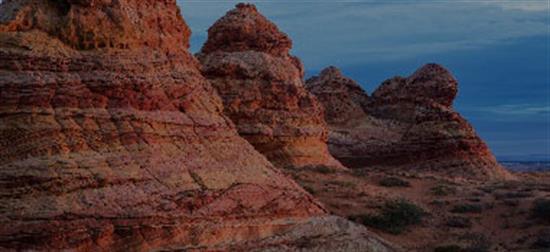Press Release
Committee Reviews Efforts of Land-Grant Universities to Solve Controversial Land Management Problems
WASHINGTON, D.C.,
April 20, 2016
|
Committee Press Office
(202-225-2761)
Tags:
Federal Lands
Today, the Subcommittee on Federal Lands held an oversight hearing on current research efforts and the future of America’s Land-Grant Colleges and Universities (LGU). A panel of representatives from four LGUs discussed current research in natural resources fields they hope can tackle many of the country’s most pressing challenges, including combatting the spread of invasive plant species, reducing the threat of catastrophic wildfire, and improving water quality and quantity. LGUs routinely employ innovative techniques to find new and beneficial ways to better care for our nation’s natural resources. Panelists focused heavily on ongoing research to improve forest management and prevent devastating wildfires. “[O]ur Wildfire and Forest Thinning program has protected and mitigated forested areas in northern and eastern Arizona from the damage and the monetary and human cost of wildfires, and, in doing so, maintaining the watersheds so critical to urban water supplies,” Dean of the College of Agriculture and Life Sciences at the University of Arizona Shane Burgess Ph.D. stated. The important research done by LGUs inform policymakers, but they are often ignored by federal land management agencies. “And yet, this good work is disregarded or distorted by federal land management agencies in a manner that threatens environmental and public safety. These Land-Grant Universities must remain immune from the political manipulation that has plagued so many of our public and private universities,” Subcommittee on Federal Lands Chairman Tom McClintock said (R-CA). Panel member Barry Perryman, Ph.D., Professor of Rangeland Ecology and Management at the University of Nevada – Reno, has consistently found that targeted livestock grazing is an effective tool to change characteristics that fuel catastrophic wildfires and control invasive species. Federal land management agencies, however, largely ignore this research and instead stick to the status quo. “It is frustrating when researchers see new scientific discoveries being ignored by the very entities that are legally mandated to use the best available science. […] If they ignore or place themselves in a position denying the implementation of new science, I assure you, smoke and ash from the Cinder Bowl will come to Washington D.C.,” Perryman said. As securing reliable funding is particularly challenging to support ongoing and future research efforts at LGUs, the panel explored alternative revenue streams to support their critical research. “We do have lands that are identified for disposal if we go back to some of those old concepts. I think we can find a funding source that could provide a great deal of opportunity to increase our understanding of how we can actually manage the land better for a better product so all of us benefit from it,” Full Committee Chairman Rob Bishop (R-UT) stated. Today there are over 100 LGUs in all 50 states, four territories and D.C. |
Newsletter Sign Up
Sign up to receive news, updates and insights directly to your inbox.

